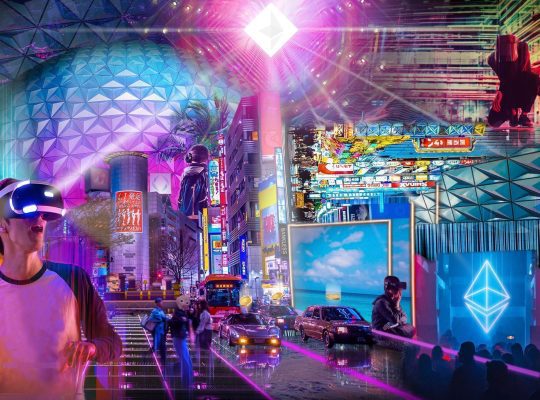eSports in the Metaverse: A New Era of Competition, Innovation, and Spectatorship
Esports have come a long way since their humble beginnings in the early 1970s. With predicted global market revenue of $1.866 million by 2025, the eSports industry has embraced the digital transformation and gained a widespread following. One burgeoning trend set to shape the future of eSports is the Metaverse, a virtual universe that aims to simulate real-world experiences in a multitude of areas, including gaming, shopping, and social interactions. In this article, we’ll explore the emergence of eSports culture in the Metaverse, its impact on the gaming industry, and the potential implications for individuals, corporations, and society.
The potential of the combination of blockchain technology and the metaverse for gaming is vast. However, there are still some challenges that need to be addressed. For instance, Valve’s Steam recently blocked all blockchain games from its platform. This has led to concerns about the adoption of blockchain technology in gaming. Additionally, the metaverse is still in its development phase, and it will take time for it to become a reality.
Metaverse: A Game-Changer for eSports
As eSports are situated within virtual landscapes, the Metaverse offers an ideal platform for these digital competitions. In fact, the two domains share many commonalities, such as virtual currencies, pop culture influences, and advanced technologies like Augmented Reality (AR) and Virtual Reality (VR). The potential for collaboration is evident, but how do virtual eSports platforms work in practice?
The 2020 League of Legends World Championship Final marked a significant turning point for eSports within the Metaverse. Riot Games used extended reality (XR) technology to create a fully immersive and interactive environment for players and viewers alike, transforming the eSports experience with stunning visuals and lifelike animations. This pioneering event demonstrated the transformative power of the Metaverse, opening new avenues for eSports arenas and paving the way for further innovation.
Virtual platforms have undoubtedly shifted the landscape of esports, democratizing gaming and driving the industry to new heights. Players, teams, and developers have all been beneficiaries of this trend. Online platforms have created new opportunities for players to showcase their skills and attract sponsorships and media exposure, and cloud-based technology has made gaming more accessible than ever before. The future of competitive gaming looks bright, and one can only envision how virtual platforms will continue to shape it in the years to come.
The Competitive Edge: Virtual Platforms Shape the eSports Landscape
Metaverse platforms offer a plethora of advantages for eSports players, viewers, and industry stakeholders. Some of the key benefits include:
- Increased Accessibility: Virtual arenas can accommodate thousands of spectators, reaching a wider audience and enabling mass participation in eSports events.
- Enhanced Immersion: The Metaverse’s cutting-edge technology allows for a more immersive experience for players and fans, creating a digital world that rivals the excitement of physical sports.
- Dynamic Monetization Strategies: Blockchain technology and non-fungible tokens (NFTs) offer innovative ways to monetize eSports events through virtual merchandise, in-game rewards, and digital betting.
The intersection of eSports and the Metaverse has not only revolutionized the realm of competitive gaming but also blurred the lines between physical sports and digital competitions. Virtual arenas can replicate the atmosphere of traditional stadiums, while digital avatars combined with advanced AI systems enable realistic interactions between players and fans, fostering a sense of camaraderie and sporting spirit within the digital domain.
Powering Innovation and the Future of Spectatorship
The fusion of eSports and the Metaverse has far-reaching implications for individuals, gaming corporations, and society as a whole. The widespread adoption of virtual gaming platforms drives innovation, pushing tech companies to develop more advanced and sophisticated hardware, software, and user experiences.

Furthermore, the evolution of spectatorship within virtual arenas has the potential to reshape social interactions and redefine what it means to be a sports fan. The use of avatars and virtual currencies, for example, allows for unique expressions of identity and creativity, fostering a sense of belonging and community among eSports enthusiasts.
However, challenges remain in utilizing blockchain technology for the benefit of eSports in the Metaverse, as evidenced by Steam’s recent ban on all blockchain games from its platform. Overcoming such hurdles will be crucial in determining the trajectory of eSports within the Metaverse.
Ultimately, eSports and the Metaverse are primed to become intertwined in ways that revolutionize the gaming industry as we know it. The merging of these two powerful platforms will create an entirely new world for gamers and sports fans alike. We can’t wait to see what lies ahead!












